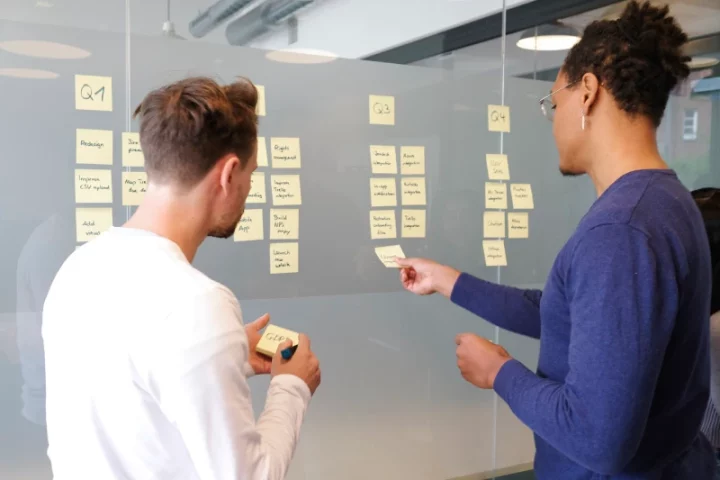Prudent time management helps you to get the most out of your college years. Time is an asset that a college student cannot afford to lose. You open a semester, and the exam timetable is released before you can catch up. Today you are in the first year, and in a while, you will write your dissertation in the final year.
ThesisHelpers are professional writers who will save time and enable you to produce the best writing for all your assignments. It will improve your performance in college and enhance your career prospects.
You are more productive and will not miss any activity or lesson in college. How can you manage time prudently with so many activities competing for your time?
Here are a few tips for Time Management that will leave time in college under your control.
Table of Contents
Work Around Your Academic Schedule

The main aim of being in college is to pursue an education. This must, therefore, be the center of all your activities and planning. Create a schedule each morning that indicates the lessons that you have to attend. Any other activity should be outside class hours.
Fulfilling the main obligations of each day comes with a great deal of satisfaction. You should, therefore, prioritise your schoolwork instead of other activities that you might be required to participate in. If learning does not receive the attention it deserves, your college life will be unsatisfactory.
If you are a student, it can be challenging to balance your academic workload with other responsibilities such as work or personal commitments. However, with some planning and organisation, it’s possible to work around your academic schedule. Here are some tips to help you manage your time more effectively:
Create a schedule: Create a daily, weekly, or monthly schedule that outlines your class times, study times, and other commitments. It will help you see your time commitments more clearly and make it easier to plan your day.
Prioritize your tasks: Identify your most important tasks and prioritize them based on their due dates or level of importance. It will help you stay focused on what’s essential and avoid feeling overwhelmed.
Use downtime effectively: Use the time between classes, during your commute, or other free time to complete smaller tasks like reading or reviewing notes. It will help you make the most of your time and keep up with your academic workload.
Learn to say no: It’s okay to refuse social invitations or other commitments if they conflict with your academic schedule. Prioritising your academic work is an essential skill that will serve you well in the long run.
Take breaks: It’s essential to avoid burnout and stay productive. Schedule breaks throughout your day to recharge and refocus
Time Is Limited

College life makes a student think that the world is at their feet. You have all day to complete your homework or begin on the assignment. In the first year, you think that four years is an eternity. It is time you woke up to the reality that time is limited. Begin working on your important project as if the deadline is tomorrow.
The best time management secret for a student is to avoid idling. Take advantage of the time available in college. Once you graduate, your work, social life, and family will take up all your time. All the time for hobbies and fun activities will be gone. Do it now, and you will maximize your college life.
Time is a limited resource, and we all must work carefully to achieve our goals and achieve what we need to do. Here are some tips to help you make the most of your time:
Set goals and prioritize: Identify and prioritize your goals based on their priority and urgency. It will help you stay attentive and avoid wasting time on tasks that are not required.
Use time management tools: There are many tools available to help you manage your time, such as calendars, to-do lists, and project management software. Use these tools to stay systematised and on track.
Avoid distractions: It’s straightforward to get diverted by social media, email, or other interruptions. Turn off notifications, close unnecessary tabs or apps, and set fixed times to check your email and messages.
Delegate tasks: Delegate tasks to others better fit to complete them.
Take breaks: It’s essential to recharge and sidestep burnout. Schedule regular breaks throughout your day to relax and refresh your mind.
Say no: It’s alright to say no to obligations that don’t align with your goals or priorities. Learn to set boundaries and prioritise your time based on what’s most significant to you.
Remember, time is a valuable resource we must manage carefully. By prioritising our goals, staying focused, and avoiding distractions, we can make the most of our time and achieve our objectives more effectively.
Plan In Detail For Each Day

Only approach any day with a plan. Evaluate the day’s activities and highlight those that are pending according to Time Management. Open the day with these actions to guarantee fulfillment. Allocate sufficient time for all activities to ensure that you deliver quality work. A planned day will be more fruitful since you are pressured to achieve these tasks.
That’s a great approach to planning your day effectively! Here are some additional tips to help you plan your day in more detail:
Prioritize your tasks: Start with the most critical and urgent tasks and work your way down. It will provide you to accomplish the most important things, and the less significant ones can be completed later.
Schedule your time: Allocate sufficient time for each task to ensure that you can provide quality work. Be honest with your time estimates and account for possible interruptions or distractions.
Take breaks: It’s essential to take frequent breaks throughout the day to avoid burnout and stay rejuvenated. Use this time to stretch, take a walk, or do something that allows you to relax.
Evaluate your progress: At the end of the day, review your to-do list and check off finished tasks. Identify any tasks that were not finished and carry them over to the next day’s plan. It will assist you in staying on track and ensure you are creating progress toward your goals.
Establish Priorities

Identify the priorities that will direct each day. Though you have detailed all your engagements, some elements may need fixing. You miss deadlines and need help to complete all the activities. Identifying priorities allows you to achieve the primary targets of the day.
Priorities should not give you a reason to leave some responsibilities. For instance, you can delay an assignment whose deadline is a few weeks away. However, note the postponement and prioritize the same work when planning your schedule. It ensures that you achieve all your goals.
Establishing priorities is essential to adequate time management and helps you concentrate on the most critical tasks. Here are some additional tips to help you establish priorities:
Identify urgent tasks: These need to be completed instantly or within a short timeframe. Prioritize these tasks to ensure you complete all deadlines and keep your schedule.
Determine the importance of tasks: Consider the significance of each task to your overall goals and objectives. Prioritize tasks that are critical to reaching these goals.
Consider the consequences of not completing a task: If there are adverse consequences for not finishing a task, prioritize it higher on your list.
Use a priority matrix: A priority matrix is a helpful tool for prioritizing tasks based on their level of quickness and importance. Tasks that are both urgent and important should be given the highest priority.
Be flexible: Priorities can vary throughout the day, so be prepared to adjust your schedule if required. It’s essential to remain focused on your goals and be flexible to unforeseen events.
Provide Room For Breaks

A college student needs regular breaks for the health of the mind and body. A break is an opportunity to rejuvenate and re-energize the mind. It protects you from fatigue that may impact your health and the quality of your academic work.
The body will force you to take a break even if you fail to make a condition. It would cause a pause in the delivery of significant projects and deadlines. If you’re looking for relaxing activities to rejuvenate your mind and body, leave room for appropriate breaks to complete all activities without rolling over. You can engage in activities such as meditation, yoga, or even taking a walk outside during your break. These activities will not only provide relaxation but also improve your focus and productivity when you return to work.
Regular breaks are essential for maintaining good health and avoiding burnout, especially for college students who are often under a lot of academic pressure. Here are some additional tips to help you make the most of your breaks:
Take breaks at regular intervals: It’s essential to take short breaks every hour or two to avoid mental and physical fatigue. These breaks help you maintain focus and energy throughout the day.
- Engage in physical activity:
- Taking a short walk.
- Stretching.
- Doing light exercises during your breaks can help you recharge and refocus.
Connect with others: Use your break time to catch up with friends, colleagues, or family. It can help you feel more connected and improve your mood.
Engage in a relaxing activity: Use your break time to engage in activities that help you relax and destress, like reading a book, listening to music, or taking a nap.
Avoid screen time: If you spend most of your day looking at a computer or phone screen, take a break from technology during your break time. It can help reduce eye strain and improve your overall well-being.
Leave A Cushion For Emergency

A packed timetable helps you achieve more during the day but is subject to interruption in an emergency. Provide reasonable time for all activities and a chance to transition from one to the other. In an emergency, crucial activities in your timetable should not be affected. It is essential to consider emergencies that may slow you down, such that you fail to deliver to meet deadlines. The consequences might be punitive if you miss the homework submission deadline because of an emergency.
Leaving a cushion of emergency time in your schedule is essential to effective time management. Here are some additional tips to help you plan for emergencies:
Add extra time to your schedule: When scheduling your activities, add extra time to account for unforeseen events or delays. It can help you avoid feeling hurried and stressed if an emergency does occur.
Identify potential emergencies: Consider how they might affect your schedule. It can help you prepare and plan for these situations in advance. Have a contingency plan: Plan for emergencies by having a contingency plan in place. It might involve entrusting tasks to others, adjusting your schedule, or rearranging priorities.
Prioritize essential tasks: In an emergency, it’s crucial to prioritize the most critical tasks to confirm that they are completed on time.
Practice good time management habits: Developing good time management habits, such as avoiding procrastination and staying organised, can help reduce the risk of emergencies and make it easier to manage unexpected events when they occur.
Procrastination Will Kill Your Dreams

Do whatever you have to do today. Do not wait until for the last minute. Procrastination will only pile pressure towards the end of the assignment. Dedicate time as early as possible to leave more room in case of an emergency.
Procrastination is one of the biggest obstacles to effective time management and can prevent you from achieving your goals. Here are some additional tips to help you overcome procrastination:
Set realistic goals: Break your tasks into smaller, manageable goals and set deadlines for each. It can help you stay motivated and focused.
Avoid distractions: Identify and eliminate potential distractions that may prevent you from staying on task. It might involve turning off your phone, closing your email, or working in a quiet, distraction-free environment.
Evaluate Schedule

Evaluating your schedule at the end of the day is a great way to reflect on your time management habits and identify areas for improvement. Here are some additional tips to help you evaluate your schedule effectively:
Review your goals: Start by reviewing the goals you set for the day and whether you achieved them. If you cannot complete all of your tasks, try to identify why and what you can do differently in the future.
Reflect on your productivity: Take time to reflect on your productivity throughout the day. Think about what times of day you were most productive and what tasks you found the most challenging.
Adjust your schedule: Based on your reflection, adjust your schedule for the following day. It might involve re-prioritizing tasks, allocating more time for certain activities, or eliminating unnecessary tasks.
Frequently Asked Questions
Effective time management can help college students maximize their productivity, reduce stress, and achieve their academic goals. It also prepares them for success in their future careers.
College students can improve their time management skills by setting priorities, creating a daily schedule, breaking tasks into smaller pieces, taking regular breaks, and leaving room for emergencies.
Some common time management mistakes made by college students include procrastination, not prioritizing tasks, not setting realistic goals, and not taking enough breaks.
College students can balance their academic work with their social lives by prioritizing their tasks, creating a schedule that includes time for socializing, and making the most of their free time.
There are many effective time management tools for college students, including apps like Google Calendar, Trello, and RescueTime, as well as traditional tools like planners and to-do lists. College students should experiment with different tools to find the ones that work best for them.




